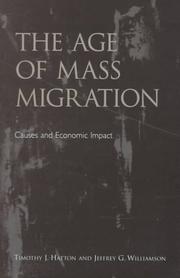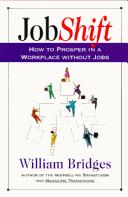| Listing 1 - 10 of 26 | << page >> |
Sort by
|

ISBN: 058224885X 9780582248854 Year: 1996 Publisher: London Longman
Abstract | Keywords | Export | Availability | Bookmark
 Loading...
Loading...Choose an application
- Reference Manager
- EndNote
- RefWorks (Direct export to RefWorks)
Labour market --- Europe --- Manpower policy --- Labor market --- -Labor market --- -331.12094 --- Employees --- Market, Labor --- Supply and demand for labor --- Markets --- Employment policy --- Human resource development --- Labor market policy --- Manpower utilization --- Labor policy --- Labor supply --- Trade adjustment assistance --- Supply and demand --- Government policy --- Manpower policy - European Union countries. --- Labor market - European Union countries. --- POLITIQUE SOCIALE --- UNION EUROPÉENNE --- Politique sociale
Book
ISBN: 9780871548597 9781610448031 1610448030 0871548593 Year: 2013 Publisher: N.Y. Russell Sage Foundation
Abstract | Keywords | Export | Availability | Bookmark
 Loading...
Loading...Choose an application
- Reference Manager
- EndNote
- RefWorks (Direct export to RefWorks)
During the middle third of the twentieth century, workers in most industrialized countries secured a substantial measure of job security, whether through legislation, contract or social practice. This “standard employment contract,” as it was known, became the foundation of an impressive array of rights and entitlements, including social insurance and pensions, protection against unsociable working conditions, and the right to bargain collectively. Recent changes in technology and the global economy, however, have dramatically eroded this traditional form of employment. Employers now value flexibility over stability, and increasingly hire employees for short-term or temporary work. Many countries have also repealed labor laws, relaxed employee protections, and reduced state-provided benefits. As the old system of worker protection declines, how can labor regulation be improved to protect workers? In Rethinking Workplace Regulation, nineteen leading scholars from ten countries and half a dozen disciplines present a sweeping tour of the latest policy experiments across the world that attempt to balance worker security and the new flexible employment paradigm.Edited by noted socio-legal scholars Katherine V.W. Stone and Harry Arthurs, Rethinking Workplace Regulation presents case studies on new forms of dispute resolution, job training programs, social insurance and collective representation that could serve as policy models in the contemporary industrialized world. The volume leads with an intriguing set of essays on legal attempts to update the employment contract. For example, Bruno Caruso reports on efforts in the European Union to “constitutionalize” employment and other contracts to better preserve protective principles for workers and to extend their legal impact. The volume then turns to the field of labor relations, where promising regulatory strategies have emerged. Sociologist Jelle Visser offers a fresh assessment of the Dutch version of the ‘flexicurity’ model, which attempts to balance the rise in nonstandard employment with improved social protection by indexing the minimum wage and strengthening rights of access to health insurance, pensions, and training. Sociologist Ida Regalia provides an engaging account of experimental local and regional “pacts” in Italy and France that allow several employers to share temporary workers, thereby providing workers job security within the group rather than with an individual firm. The volume also illustrates the power of governments to influence labor market institutions. Legal scholars John Howe and Michael Rawling discuss Australia's innovative legislation on supply chains that holds companies at the top of the supply chain responsible for employment law violations of their subcontractors. Contributors also analyze ways in which more general social policy is being renegotiated in light of the changing nature of work. Kendra Strauss, a geographer, offers a wide-ranging comparative analysis of pension systems and calls for a new model that offers “flexible pensions for flexible workers.”With its ambitious scope and broad inquiry, Rethinking Workplace Regulation illustrates the diverse innovations countries have developed to confront the policy challenges created by the changing nature of work. The experiments evaluated in this volume will provide inspiration and instruction for policymakers and advocates seeking to improve worker’s lives in this latest era of global capitalism.
Social law. Labour law --- Droit du travail --- Contrat de travail --- Relations industrielles --- Régularisation --- Labor contract --- Droit du travail. --- Relations professionnelles. --- Contrat de travail. --- Régularisation. --- Labor contract. --- Employment contract --- Contracts --- Hire --- Industrial relations --- Labor laws and legislation --- Law and legislation --- Labor market --- Employees --- Market, Labor --- Supply and demand for labor --- Markets --- Supply and demand --- E-books
Periodical
ISSN: 17518326 17518334 Publisher: Norwich
Abstract | Keywords | Export | Availability | Bookmark
 Loading...
Loading...Choose an application
- Reference Manager
- EndNote
- RefWorks (Direct export to RefWorks)
Labour market --- Labor market --- Labor policy --- Labor supply --- Labor --- Marché du travail --- Travail --- Periodicals. --- Grande-Bretagne --- Périodiques --- Politique gouvernementale --- Great Britain --- Economic conditions --- Statistics --- -Economics --- -Employment (Economic theory) --- -Labor market --- -331.094105 --- Employees --- Market, Labor --- Supply and demand for labor --- Markets --- Economics --- Economic theory --- Political economy --- Social sciences --- Economic man --- Supply and demand --- -Periodicals --- -E-journals
Periodical
ISSN: 21939020 Year: 2012 Publisher: Heidelberg Springer Open
Abstract | Keywords | Export | Availability | Bookmark
 Loading...
Loading...Choose an application
- Reference Manager
- EndNote
- RefWorks (Direct export to RefWorks)
Labor economics --- Economie du travail --- Periodicals --- Périodiques --- Labor market --- Labor market. --- Developing countries. --- Labor & Employment. --- Employees --- Market, Labor --- Supply and demand for labor --- Supply and demand --- Emerging nations --- Fourth World --- Global South --- LDC's --- Least developed countries --- Less developed countries --- Newly industrialized countries --- Newly industrializing countries --- NICs --- Third World --- Underdeveloped areas --- Underdeveloped countries --- human behavior --- Markets --- Social stratification

ISBN: 0195116518 0585356823 1602562237 1280470216 019535379X 9780585356822 9781602562233 9781280470219 9780195353792 6610470219 9786610470211 0197709931 Year: 1998 Publisher: Oxford Oxford University Press
Abstract | Keywords | Export | Availability | Bookmark
 Loading...
Loading...Choose an application
- Reference Manager
- EndNote
- RefWorks (Direct export to RefWorks)
Between 1850 and 1914 approximately 55 million Europeans migrated to the New World including North and South America and Australia. This study describes the phenomenon and analyses the economic effect that this had.
Migration. Refugees --- Labour market --- Economic structure --- Emigration and immigration --- Foreign workers --- Labor market --- Employees --- Market, Labor --- Supply and demand for labor --- Markets --- Alien labor --- Aliens --- Foreign labor --- Guest workers --- Guestworkers --- Immigrant labor --- Immigrant workers --- Migrant labor (Foreign workers) --- Migrant workers (Foreign workers) --- Immigration --- International migration --- Migration, International --- Population geography --- Assimilation (Sociology) --- Colonization --- Economic aspects&delete& --- History --- Supply and demand --- Employment --- E-books --- Economic aspects --- History. --- Noncitizen labor --- Noncitizens --- DEMOGRAPHIE HISTORIQUE --- POPULATION --- EMIGRATION ET IMMIGRATION --- METHODOLOGIE --- HISTOIRE --- Émigration et immigration --- Population

ISBN: 0201626675 0201489333 Year: 1994 Publisher: Reading, Mass. Addison-Wesley
Abstract | Keywords | Export | Availability | Bookmark
 Loading...
Loading...Choose an application
- Reference Manager
- EndNote
- RefWorks (Direct export to RefWorks)
Personnel management --- Unemployment --- -Occupations --- -Labor market --- -658.312 --- Employees --- Market, Labor --- Supply and demand for labor --- Markets --- Career patterns --- Careers --- Jobs --- Trades --- Handicraft --- Vocational guidance --- Work --- Joblessness --- Employment (Economic theory) --- Full employment policies --- Labor supply --- Manpower policy --- Right to labor --- Underemployment --- Induction, deployment, promotion etc. --- Supply and demand --- Labor market --- Occupations --- 658.312 Induction, deployment, promotion etc. --- 658.312 --- Induction, deployment, promotion etc --- Carrière professionnelle
Book
ISBN: 9059016815 Year: 2005 Publisher: Den Haag Reed Business Information
Abstract | Keywords | Export | Availability | Bookmark
 Loading...
Loading...Choose an application
- Reference Manager
- EndNote
- RefWorks (Direct export to RefWorks)
Labor market --- Older people --- Young adults --- #SBIB:316.334.2A343 --- Young people --- Young persons --- Adulthood --- Youth --- Aged --- Aging people --- Elderly people --- Old people --- Older adults --- Older persons --- Senior citizens --- Seniors (Older people) --- Age groups --- Persons --- Gerontocracy --- Gerontology --- Old age --- Employees --- Market, Labor --- Supply and demand for labor --- Markets --- Employment --- Arbeidssociologie: ongelijkheden op de arbeidsmarkt: positie van jongeren en ouderen op de arbeidsmarkt --- Supply and demand --- Age group sociology --- Labour market --- Netherlands
Book
ISBN: 9053509224 9789053509227 Year: 1999 Publisher: Leuven Garant
Abstract | Keywords | Export | Availability | Bookmark
 Loading...
Loading...Choose an application
- Reference Manager
- EndNote
- RefWorks (Direct export to RefWorks)
Inhoud : Deel 1 : De begrippen arbeid en niet-arbeid : een situering Deel 2 : Arbeid en niet-arbeid : een socio-economische context vol uitdagingen Deel 3 : Arbeid en niet-arbeid : een economische, sociologische en sociopsychologische benadering Deel 4 : Op weg naar een participatiemaatschappij
arbeidsmarkt --- Labor market --- Labor --- Social participation --- Unemployment --- Arbeids- en organisatiepsychologie --- Social aspects --- Arbeidsmarkt. --- Sociology of work --- 316.334.2 --- 351.83 <493> --- arbeid --- België --- demografie --- statistiek --- werkgelegenheid --- werkloosheid --- werklozenprogramma's --- arbeidsmotivatie --- arbeidssociologie --- armoede --- economie --- participatie, maatschappelijke --- sociale ongelijkheid --- sociale problemen --- sociale psychologie --- tewerkstellingspolitiek --- #SBIB:17H25 --- #SBIB:316.334.2A300 --- Arbeid 331 --- Arbeidsmarkt 331.52 --- 331 <493> --- 331.5 --- 331 --- 450 Werkgelegenheid en arbeid --- #A0004A --- 331 Arbeid. Labour economics. Arbeidseconomie --- Arbeid. Labour economics. Arbeidseconomie --- 331 <493> Arbeid. Labour economics. Arbeidseconomie--België --- Arbeid. Labour economics. Arbeidseconomie--België --- 331.5 Arbeidsmarkt. Werkgelegenheid --(algemeen) --- Arbeidsmarkt. Werkgelegenheid --(algemeen) --- Participation, Social --- Community life --- Social groups --- Joblessness --- Employment (Economic theory) --- Full employment policies --- Labor supply --- Manpower policy --- Right to labor --- Underemployment --- Labor and laboring classes --- Manpower --- Work --- Working class --- Employees --- Market, Labor --- Supply and demand for labor --- Markets --- 301.17 --- 331.6 --- Sociale wijsbegeerte: economische orde en arbeid --- Arbeidssociologie: arbeidsmarkt en werkloosheid: algemeen --- Supply and demand --- Arbeid --- Arbeidssociologie --- Arbeidsmarkt --- Tewerkstellingsbeleid --- Werkloosheid --- Arbeid (werken)
Book
ISBN: 9044115944 Year: 2004 Volume: 2004 Publisher: Antwerpen Garant
Abstract | Keywords | Export | Availability | Bookmark
 Loading...
Loading...Choose an application
- Reference Manager
- EndNote
- RefWorks (Direct export to RefWorks)
Dit boek geeft een gedetailleerde beschrijving van de temporele organisatie van het werk in Vlaanderen en hoe deze evolueerde, op basis van een tijdsbudget bij de Vlaamse bevolking. Hoeveel uren werken bij? Wie werkt er 'van negen tot vijf'? Hoeveel Vlamingen werken 's avonds, 's nachts en in het weekend? Wie geniet veel tijdsoevereiniteit? Hoe organiseren deeltijdsen hun arbeid? De vergelijking van de gegevens van 1988 en 1999 maakt het mogelijk een aantal evoluties te bekijken. Werken we nu langer of korter dan vroeger? Zijn de arbeidstijden nu echt flexibeler en minder voorspelbaar? Er is ook bijzondere aandacht voor de verschillende arbeidsmarktsituatie van mannen en vrouwen en de problematiek van de combinatie arbeid en gezin. Het boek besluit met een aantal pertinente beleidsconclusies.
arbeidsmarkt --- tijdsbesteding --- Sociology of work --- Flanders --- 331.6 --- P493VL --- 331.5 <493-17> --- 311 --- Academic collection --- #A0406A --- 450 Werkgelegenheid en arbeid --- Arbeidsduur 331.31 --- Toerisme 338.48 --- Arbeidsmarkt 331.52 --- Gezin 314.6 --- Ministerie van de Vlaamse Gemeenschap 353.11 --- #SBIB:311.21 G --- #SBIB:316.7C400 --- 331.81 --- Vlaanderen --- arbeidsmarkt - arbeidsmarktvraagstukken - arbeidsmarktstudie - arbeidsmarkt, analyse van de - arbeidsplaatsen --- Arbeidsmarkt. Werkgelegenheid --(algemeen)--Vlaanderen. Vlaams Gewest. Nederlandstalige Gemeenschap in België --- Statistische methoden --- Statistische gegevens --- Vrijetijdssociologie: algemeen --- arbeidstijd - werktijd - arbeidsduur --- 493.8 --- 311 Statistische methoden --- 331.5 <493-17> Arbeidsmarkt. Werkgelegenheid --(algemeen)--Vlaanderen. Vlaams Gewest. Nederlandstalige Gemeenschap in België --- Belgium --- Hours of labor --- Labor market --- Employees --- Market, Labor --- Supply and demand for labor --- Markets --- Alternative work schedules --- Children --- Labor, Hours of --- Work hours --- Work schedules --- Working-day --- Working hours --- Work --- Labor productivity --- Labor time --- Timekeeping --- Weekly rest-day --- Supply and demand --- Family --- Labour --- Labour market --- Time allocation --- Book
Periodical

ISSN: 13614819 Year: 2006 Publisher: Norwich
Abstract | Keywords | Export | Availability | Bookmark
 Loading...
Loading...Choose an application
- Reference Manager
- EndNote
- RefWorks (Direct export to RefWorks)
Labor --- Labor supply --- Labor policy --- Labor market --- Arbeidsmarkt. --- Arbeitsmarkt --- Arbeitsmarktstatistik --- Lohnstatistik --- Großbritannien --- Labor. --- Labor market. --- Labor policy. --- Labor supply. --- Labor force --- Labor force participation --- Labor pool --- Work force --- Workforce --- Human capital --- Labor mobility --- Manpower --- Manpower policy --- State and labor --- Economic policy --- Employees --- Market, Labor --- Supply and demand for labor --- Markets --- Work --- Working class --- Labor and laboring classes --- Government policy --- Supply and demand --- Great Britain. --- Anglia --- Angliyah --- Briṭanyah --- England and Wales --- Förenade kungariket --- Grã-Bretanha --- Grande-Bretagne --- Grossbritannien --- Igirisu --- Iso-Britannia --- Marea Britanie --- Nagy-Britannia --- Prydain Fawr --- Royaume-Uni --- Saharātchaʻānāčhak --- Storbritannien --- United Kingdom --- United Kingdom of Great Britain and Ireland --- United Kingdom of Great Britain and Northern Ireland --- Velikobritanii͡ --- Wielka Brytania --- Yhdistynyt kuningaskunta --- Northern Ireland --- Scotland --- Wales --- Labour market --- Arts and Humanities --- Business, Economy and Management --- Education & Careers --- Business Management --- Economics --- General and Others
| Listing 1 - 10 of 26 | << page >> |
Sort by
|

 Search
Search Feedback
Feedback About UniCat
About UniCat  Help
Help News
News